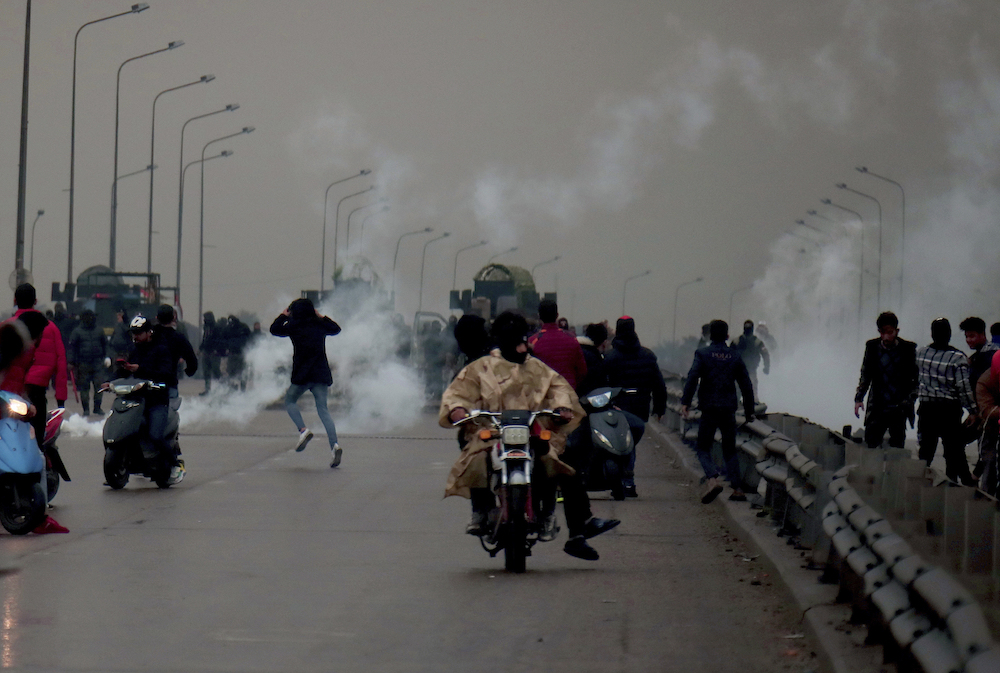Arab leaders call for greater understanding across region
DUBAI: Countries need to respect the sovereignty and boundaries of their neighbors, while empowering Arab youth, if the region’s political and economic situation is to be improved, Omar Al-Razzaz, Prime Minister of Jordan and Minister of Defense said at the second day of the World Economic Forum (WEF) in Davos, Switzerland.
Speaking Wednesday on a panel ‘examining the geopolitical outlook of the Middle East and North Africa,’ Razzaz said Arab states needed to reflect on the region’s history in the last decade, and “draw lessons” to ensure the upcoming decade is one of prosperity.
“We must re-examine the model where we are constantly undermining countries’ sovereignties and boundaries and we must be very careful with the sorts of interventions we take part in regionally and globally,” he said.
Describing the Middle East as a “youth-orientated region,” with an average age of 35, he called on Arab states to shift their focus to investing in today’s young.
“We need to engage youth and hear their voices both politically and economically,” he said, adding that the region needed to deal with the refugee situation.
Razzaz emphasized the importance of extending support to host countries of those displaced, describing the migrant crisis as a “global” — not just Jordanian – issue, adding that they accounted for 20 percent of Jordan’s population.
“When we don’t support countries that host refugees… what is the message in principle that we are sending to others that are opening their arms to refugees?” he asked.
With well over a million displaced people residing in Jordan, the government’s annual spending on refugees has reached $2.4 billion, said Razzaz, adding that aid covered only 42 percent of the cost.
According to the United Nations Higher commissioner for Refugees (UNHCR) Jordan ranks among the highest impacted by the Syria crisis, hosting the second biggest share of refugees per capita in the world.
“This part of the world has decided they don’t want to deal with refugees from the region, and that is their right… but we must get over the donor fatigue issues,” said Razzaz.
He said no hate crimes had been committed against the 85 percent of Syrian refugees living in Jordan’s cities.
“We [Jordan] are proud of that because we are all trying to bear the burden together despite of challenges,” he added.
On his country’s progress, Razzaz said Jordan had presented a model that “shows political and economic resilience,” noting that exports had grown by 9 percent and tourism by 10 percent in 2019.
But he said Jordan continued to face “tremendous challenges.”
“We have high unemployment rates and we have youth who want jobs and want to be productive,” he said, adding that they made their calls through peaceful protest.
“It is their right to go to the streets and ask for more jobs, and it’s our responsibility to make it happen,” he said.
Sharing his view on the region’s geopolitics, Yousuf Bin Alawi Bin Abdullah, Oman’s Minister of Foreign Affairs, who has held the same position for 48 years, said Arab governments should focus on building a positive future for the Middle East, one that involves the new generation.
He referred to conflicts in the region — including the Israeli- Palestinian situation — as “man-made” problems based on “tactics” that work to protect individual interests.

Jordan WEF event to focus on ‘new platforms of cooperation’AS IT HAPPENED: Davos 2020 Day Two – Middle East geopolitics and more



